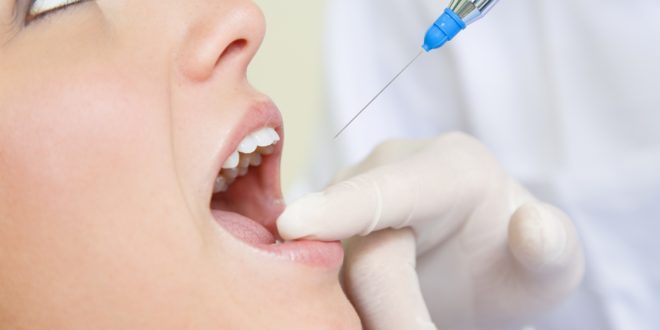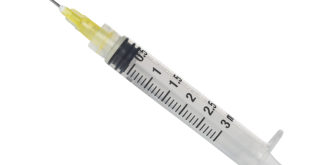Every year, many people find themselves or their loved ones in need of anesthesia to get through their dental procedures.
This may be due to extreme anxiety, a young patient that can’t hold still, or perhaps a special needs patient that won’t tolerate the dental work while awake.
But how safe is anesthesia at the dentist’s office?
Although statistics are hard to come by, it seems like every year we hear a tragic story about a child, or other person, that died from a complication during a dental procedure with anesthesia.
While there will always be some amount of risk associated with every medical or dental procedure, here are some tips to ensure a safer experience for you or your loved one.
Get answers to these questions BEFORE you go forward with the dental anesthesia.
1. Who will be performing the anesthesia and what are his/her credentials?
If anything more than local anesthesia is used, who will be administering and monitoring the anesthesia? Dentists will sometimes have their dental assistant administer the anesthesia (under the dentist’s direction). Alternatively, the dentist may bring in a physician anesthesiologist or a dental anesthesiologist to perform the anesthetic. In this scenario, the dentist can focus on the dental work while this second professional is in charge of the anesthetic.
Anesthesiologists, who are physicians, complete a four year residency that trains them to be experts in airway management and the administration of anesthesia of all types.
Dental anesthesiologists are dentists that have undergone a two year anesthesia residency. Here is more information from the American Society of Dentist Anesthesiologists.
Dental assistants may only have a few days of formal training in anesthesia and sedation.
Be sure to ask your dentist who will be performing the anesthesia, what credentialsthey have, and what experience they have.
2. What type of anesthesia will be used?
It can be very confusing for patients to understand what type of anesthesia is planned. There is everything from local anesthesia, to sedation (minimal, moderate, deep), to general anesthesia. And the same drugs can be used for multiple types of anesthesia. Then there is IV anesthesia versus anesthesia gases and nitrous oxide. That can get very confusing! We have a separate post talking all about this here.
So be sure to ask your anesthesia provider all about their anesthesia plan. Get all your questions answered!
3. What if something goes wrong?
Does the staff assisting in the procedure have current certifications for emergency resuscitation procedures? What I am referring to here are things like BLS (Basic Life Support) and advanced certifications (ACLS- Advanced Cardiovascular Life Support, PALS- Pediatric Advanced Life Support).
How about the equipment necessary in an emergency? Ask if they have all the equipment and drugs that would be needed in an emergency immediately available.
Is there an emergency plan in place, should there be a need for more help in caring for the patient?
4. What Should I expect with dental anesthesia?
If an anesthesiologist will be involved in your care, expect a consultation BEFORE undergoing the procedure. This will involve a detailed medical history, focused physical exam, and a review of any pertinent blood work and other studies. This will happen at some point before the dental work (sometimes the day of the procedure) and will aid in designing your anesthesia plan.
Please ask any questions you have about the anesthesia so that you are comfortable with the plan and are making an informed decision.
5. Get a Complete Game Plan for that day.
If the anesthetic will involve more than local anesthesia, you will likely be given fasting guidelines.
You should also be given guidance on what medications to take the day of surgery and which to hold (if you take any regular medications for any health conditions).
Be sure to ask about any other relevant information you may need. Things like having a responsible adult to drive you home, etc. Sometimes the dental office has these instructions in a handout that you can follow.
*******
Those are your 5 quick tips for a safer, smoother experience at the dentist’s office.
If you’ve got any other questions, please ask them in the comments below.
And if you’ve experienced dental anesthesia, please share your experiences with our community in the comments as well.
 Anesthesia Myths: Get the Facts, Lose the Fear | Your #1 Anesthesia Resource in Simple language
Anesthesia Myths: Get the Facts, Lose the Fear | Your #1 Anesthesia Resource in Simple language




